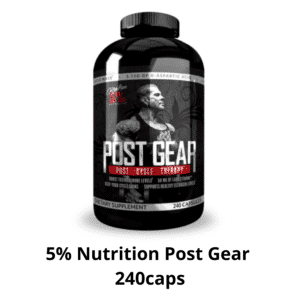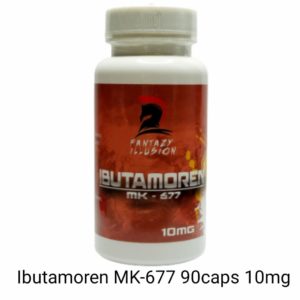
Creatine hydrochloride or creatine monohydrate – which to choose?
Creatine hydrochloride or creatine monohydrate – which to choose?
Apart from whey protein, creatine is the most commonly used dietary supplement among bodybuilders and strength trainers. Its popularity is not accidental, of course. Creatine has a very favorable influence on the behavior of the body during physical effort. This is why it is widely used in modern sports. For a long time, creatine was available mainly in the form of the monohydrate. However, for some time, other forms of this supplement can be found on the market. One of them is creatine hydrochloride (HCL). What are its advantages, and will it be a better choice than the traditional monohydrate?
What benefits does creatine supplementation provide?
Contrary to some opinions, creatine is not a doping agent. On the contrary! The human organism produces it naturally with the participation of specific amino acids. We can also absorb this compound from the food we eat. Creatine is mainly found in muscle tissue so that meat meals can be a good source.
However, bodybuilders, athletes, and strength trainers very often decide to take additional creatine supplementation. Why? Because supplementation leads to an increase in the amount of creatine stored in muscle tissue. This, in turn, affects muscle preservation during exercise.
Interestingly, creatine monohydrate is one of the best researched dietary supplements. After all, it has been on the market for many years. Researchers have managed to get a thorough understanding of its properties. So what is known? The human body converts creatine into adenosine triphosphate (ATP), the primary energy carrier in cells. This energy is later used during physical exercise.
Thus, taking creatine leads to an increase in strength during resistance exercises. This is its main advantage from the point of view of strength trainers. As a result, the exerciser can perform more repetitions over time or increase the weight used as a load. Of course, this will lead to faster growth of muscle mass. Thus, it would be challenging to create a better supplement for all bodybuilders and figure athletes.
Furthermore, some researchers believe that creatine also provides a subtle improvement in performance during anaerobic exercise. Such a benefit would be significant for runners, cyclists, and other aerobic exercisers. In addition to this, creatine has also been studied for enhancing cognitive and mental abilities. However, in this case, the results of the study are inconclusive.
 Monohydrate, malate, hydrochloride – what are the forms of creatine?
Monohydrate, malate, hydrochloride – what are the forms of creatine?
Creatine monohydrate appeared on the market a long time ago. However, until today it is the most popular form of creatine. Why? Because its main advantage is the factor above, namely thorough testing. Creatine monohydrate is currently the best and safest method of supplementation to increase strength and maximize mass muscle gain. This is why some people still try to refer to creatine as a steroid. However, such a comparison is entirely pointless.
On the other hand, monohydrate has its disadvantages. One of them is its relatively low solubility. This is why people taking creatine monohydrates are advised to drink plenty of water. However, the manufacturers of sports nutrition products decided to find a solution to this problem. This is how creatine malate was developed, i.e., a product combining creatine with malic acid in a 3:1 ratio. The malic acid was added in order to increase the absorption of creatine. Admittedly, malate ended up being more expensive than monohydrate. Nonetheless, it attracted much interest from strength trainers.
The newest product on the market is creatine hydrochloride, also known as HCL. Its genesis was almost identical, as manufacturers were continually looking to increase the bioavailability of creatine. In studies conducted, it has been shown that hydrochloride has much better bioavailability than monohydrate. Furthermore, creatine supplementation in this form avoids the phenomenon of increased water retention in the body. After all, this is the main “bane” for people taking the monohydrate. Some manufacturers also declare that better absorption of HCL ensures higher efficiency of supplementation.
Hydrochloride or monohydrate – which form of creatine to choose?
It is indeed hard to disagree with the statement that creatine monohydrate has some disadvantages. Increased water retention can be particularly problematic for people aiming at weight reduction. On the other hand, it must be remembered that monohydrate is the best-researched form of creatine with documented effects.
When it comes to HCL or creatine hydrochloride, it is a bit different here. Of course, the presented research seems to confirm the thesis of better absorption of this compound than the monohydrate. However, studies dedicated to the effects of supplementation have produced very similar results. In most cases, the researchers found no clear differences between supplementation with creatine monohydrate and creatine hydrochloride.
Thus, hydrochloride may be a good alternative for people who want to avoid excessive water retention in the body. In other cases, monohydrate will be a cheaper and at the same time a better-researched solution. However, the final choice always belongs to the person training.

Summary
Scientists unanimously claim that taking creatine is beneficial for people who train for strength. Creatine has a positive influence on muscle work and efficiency during physical activity. When it comes to the way of taking creatine, its best-researched form is monohydrate. However, this compound causes increased water retention in the body, so some people look for another alternative. It can be, for example, creatine hydrochloride, which is absorbed much better than monohydrate. On the other hand, hydrochloride is not a thoroughly tested compound. So it is worth taking this into account when choosing creatine.




